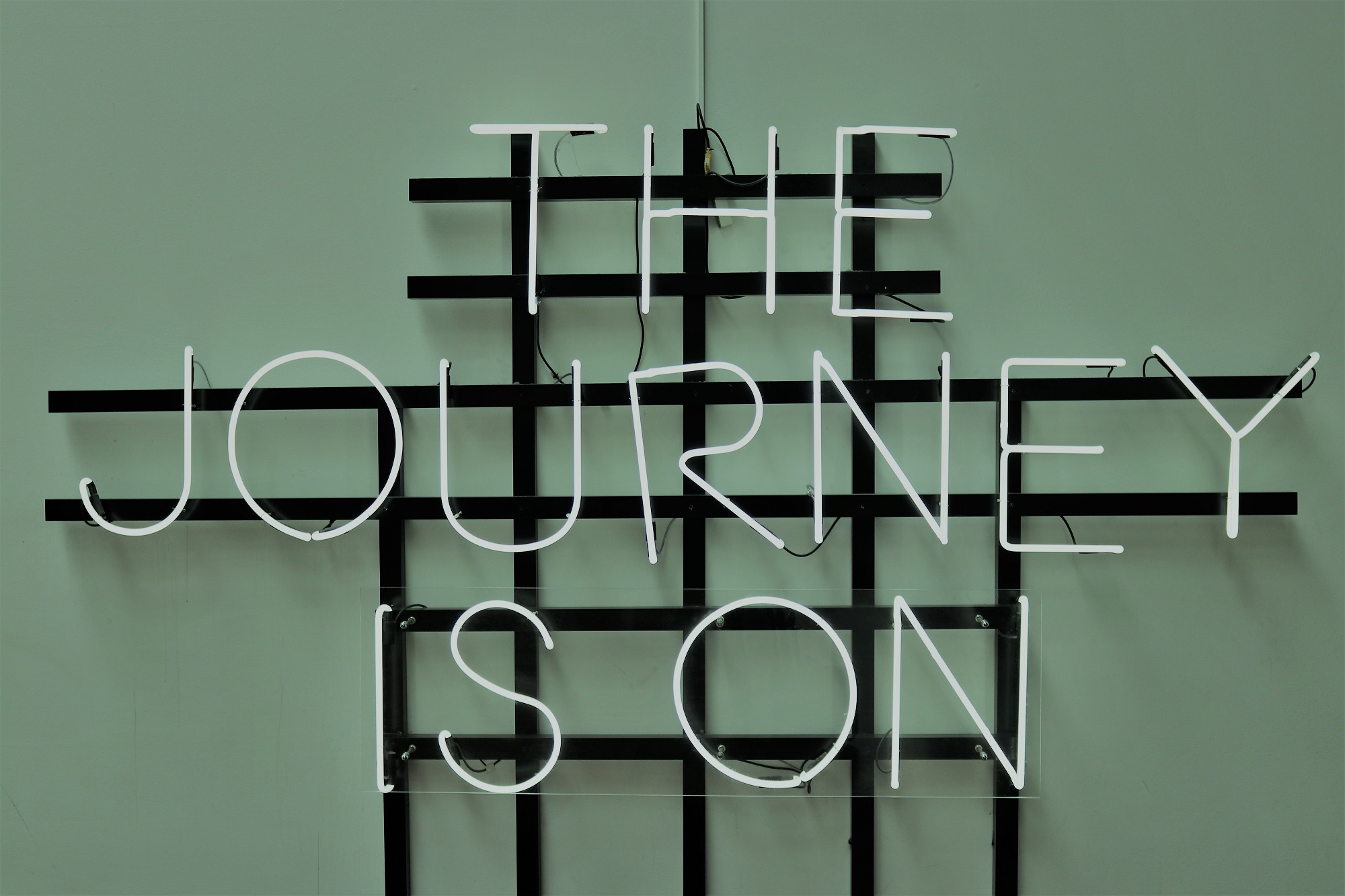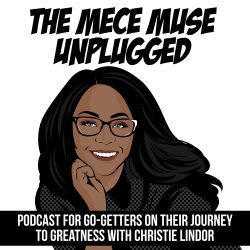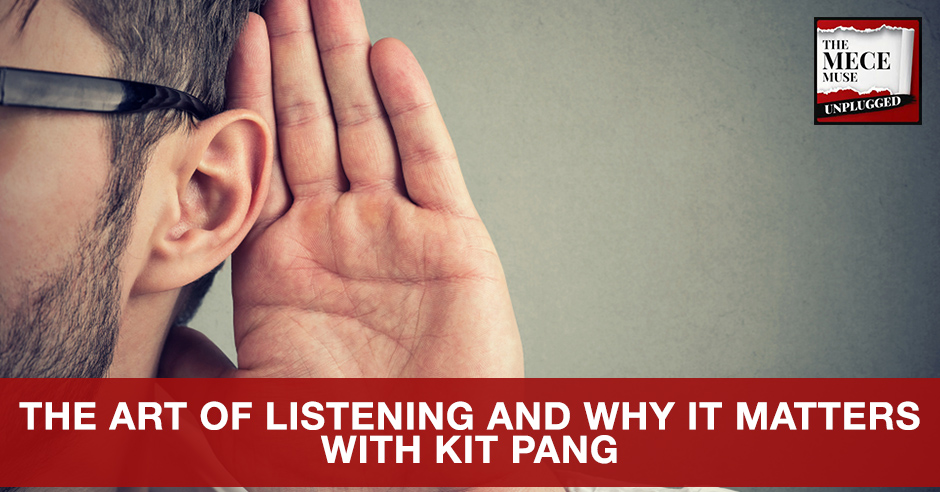Quick wins interview with Kit Pang, strategic communications expert and Founder of BostonSpeaks, one of Boston’s leading professional development organization providing training in communication, leadership and business.
As a speaker and seminar leader, Kit is on a mission to help individuals become exceptional speakers and communicators. Kit’s seminars and talks have been credited as super fun, engaging, soul-searching and insightful. In this episode, Kit shares specific tactics on how you could become an effective consultant through the art of empathetic listening.
Listen to the Episode Here:
Podcast: Play in new window | Download | Embed
Subscribe: Apple Podcasts | Email | TuneIn | RSS | More
Interview with Kit Pang
We’re going to be talking about the art of listening. Go-getters, if you want to be a great consultant, listening is your secret weapon. I’m excited that we’re going to get a chance to connect with Kit Pang. He’s the Founder of BostonSpeaks. He’s a communications expert. He calls himself a people whisperer. He’s also a keynote speaker as well as a TEDx speaker. We’ll be talking to him, deep diving on a number of different techniques that you can use to enhance your listening skills as well as hear a little bit about his journey. We’re super excited to have Kit on the show and let’s get started. Kit, how are you doing? Welcome to the show.
Christie, thank you so much for having me on. I’m excited. Let’s do it.
I would love for you to introduce yourself to the go-getters of the show.
I’m the owner of three cats. That’s what the audience should know. I’m having all these cat issues. I’m not sure if your audience ever heard of the guy named Cesar Millan. He’s known as The Dog Whisperer. He has a TV show. He takes a bad dog and at the end of the show, he turns the bad dog into a good dog. We all know it’s a TV show, but it’s a skill that he has that he knows what to do with these animals. Even if the bad dog goes back to the owner that day, that bad dog can turn bad again. This person knows what he is doing with the animal to relate to the animal and make that animal change.
I had all these cat issues. They can never be in the same room, so I had to call a cat consultant myself. What about people? There’s no such thing as a people whisperer. It’s the same exact thing they are doing with animals, but there’s no such thing as a people whisperer. If you understand it, it’s still mammals at the same time. Do you know how to listen to people’s body language? Do you know how to listen to their tone of voice? Do you know how to listen to their emotions? Basically, that’s what I do for a living. I help people understand people a little bit more. They can be like people whisperers and that’s a little bit of what I do.
It would be great if we can take a step back and you could maybe share a little bit about yourself. How did you get started in terms of the work you do with BostonSpeaks and being that people whisperer?
In the more official pitch, I’m the Founder of BostonSpeaks. It is a leading professional development company in Boston. We help individuals improve their communication skills from public speaking to executive presence, mainly focusing on professional development. I used to be a hip-hop street performer. I used to break dance. I used to dance hip-hop. I used to be a choreographer for several years. I loved it, but my passion for dance was going down. When it was going down, at the back of my mind I was saying, “How are people getting booked and paid to speak? I wanted to do something like that.” When my passion was dying down, I wanted to investigate this public speaking thing. I would find a room and then I would do something called BIS, put butts in seats. I would teach a communication or public speaking skill. I would do around four to five workshops a month.
When I first started in 2016, I probably taught more than 150 workshops. I would find a space, put butts in seats. I had to learn along the way of something called CTS, convert to sales. You can be a great artist. You can be a great entrepreneur. That’s why they call artists starving artists. If you don’t know how to market or sell yourself, then you can’t make it in the business game. I always wanted to become a better communicator myself. I’m not sure if you have ever seen those people when they speak, they sound eloquent. It seems everything flows from their body language, their presence to the way they speak. I always wanted to become someone like that. I’m still on a mission to becoming an exceptional communicator. I’m telling everyone, I’m sharing everything that I’m learning with people along the way so they can be the best leaders, influencers and impact makers that they can be. That’s how I basically got my starts of what I’m doing.
You gave me two new acronyms. As a consultant, I thought I knew a lot of different acronyms, but you taught me two. It shows that I’m also still on my journey as well. Thank you for the butts in seats and convert to sales. You have a background in hip-hop dancing and that you loved that. Over time you lost that passion. What are some commonalities between the passions that first ignited you into hip-hop dancing? How that same type of passion translated to the work you’re doing in terms of the workshops and helping people with their communication skills? Have you seen any key themes in that?
There’s a key theme in everything that we do. Even the things that you love to do or the things that your audience loves to do. When you are in the zone of what you do, you feel like you are yourself. You’re obsessed with that topic. You fall into a zone. It could even be a conversation with a good friend or a stranger and sometimes time fly by. You don’t know why, but it’s like five hours went by because you guys were synced together. Whether you’re dancing, whether you’re on a podcast, whether you’re an artist, you dive down into this topic or this thing that you’re doing and you feel you’re in the zone. That’s the way I feel. I used to be scared of public speaking, but in college I went into this public speaking competition. I practiced day in and day out for a week until 2:00 AM. When I got on stage, I felt I was able to close my eyes and put my arms out because I practiced so much the words were coming out. I felt that I was able to share who I am on stage. That’s what the link is. No matter if I was dancing or I’m teaching about communication skills, I can feel like I’m offering my best to the people. That’s the best feeling that anyone can get. When you can be yourself and you can share your creativity, you can share your thoughts. That’s the link that’s powerful.

When I first started my career, it was primarily methodologies and all those business technical things that they taught me. I always loved consulting. Over the years as I tried to delve deeper into why I love consulting as much as I do, it’s because I feel I can be creative in my problem-solving. It feels it’s an endless opportunity to create and help build new things, new ideas, and new solutions. You’re right in that anything we do, even if at the surface it may come off as one way to people. If you have a true passion, it’s because you can unleash your creativity into it. That’s what creates that passion.
Your passion might be consulting now. It might change later. It changes, it develops and then you have to follow your passion. Sometimes it’s hard to stick to one thing. You have to let something drive you, so you can still stay passionate about it.
What would be one of the guidance advice when you see how you made that transition? That was a significant reinvention to go from hip-hop dancing to then becoming a public speaking consultant and professional. What advice would you give to individuals that they’re seeking their passion? I had been having a lot of conversations with people that are yearning for that but they feel lost, they feel stuck. They’re trying to figure out what is that for them. What advice would you give them?
They asked Warren Buffett when he decides to choose new CEOs or hire new people, they said, “How do you find these great people that work for you?” He always asked this one question to his potential hires. He asked them, “What are you obsessed about with what we do or what you do?” That’s my number one tip. I’m going to ask your audience, “What are you obsessed with?” When you are obsessed with something, you go into more than learning about it. It becomes a lifestyle for you. If I was a dancer, I made it as a dancer because it was a lifestyle for me. If you want to investigate and if you want to dive into a new field, it won’t be a job for you unless it’s a lifestyle for you because a lifestyle is something that you’re passionate about.
Christie, people know that you’re a consultant because you talk about it. People hear you do it. People see you do it. Whatever you want to transition next to, what can you be obsessed about? People can hear about it, see you talk about it on social media in new life. People can see you take pictures doing it right. I don’t dance anymore. I speak now. People can hear me speak. They can watch videos of me speaking. It’s a whole lifestyle change. Whatever thing that you want to change into, most people first are scared because they might be thinking, “I might be going into a new career move. How would people think if I don’t have expertise in it? What would my friends think?” It’s a lifestyle. People will see you this way. Maybe that’s why people feel scared because they’re like, “I don’t know what to talk about on this topic or I’m not an expert or whatever it is.”
The tip is what are you obsessed about? If your obsession becomes big, it will become a lifestyle. My number two tip is I’m going to ask you and your audience this. We can go right through it. Ask yourself why at least five times. If you are in the middle of a career transition or maybe you love what you do right now, I’m going to say, “Why do you want to make a career move? Why do you love the thing you do now?” Try this with me. Why do you like what you do?
I like what I do because I feel I can make an impact.
Here’s the thing, it’s up to you to see the next question. You can use what or why. Why is it important that you make this impact?
It’s important for me because I didn’t have the resources that I do now. I feel it’s my way of giving back because I want people to get the help and support that they need, that I didn’t get when I was younger in my career.
Are you saying that you feel it’s crucial for you to give back because you felt like you didn’t get that support when you were growing up?
Earlier in my career, I didn’t get it. Now that I have this knowledge, I want to be the change I wish to see in the world. That was what started me being a mentor and helping others.
It’s always asking why because sometimes these are the most important things. We go from meeting to meeting or sometimes we’re walking or we’re running. We forget the reason why we’re doing it in the first place. This reason why people will get attracted to you because if you told this other person, if you have clients, you might not even tell them. If you do tell them, they might get a bigger sense. You’re doing it because you want to be a change agent. You want to make this impact because it affected you and your own personal life in a way. People can feel that and that’s what they want to see, not because you want to do it for money. It’s this bigger reason that they’ll get attracted to you. Those are two tips.
As you were talking through your tips, you’ve mentioned about you speaking for a living and people seeing you speak. I’m going to pivot and discuss our topic, which would still relate to that around listening. I feel there are a lot of resources on speaking and communication, but there’s not as much emphasis on the art of listening. As consultants, that’s your secret weapon to success is your ability to listen to what’s said and also listen to what’s not said and to listen three-dimensionally. You did a TEDx Talk on listening. To kick off this conversation, maybe you can talk about why you chose listening as your TED Talk and share with us what are some of the ways that you viewed listening and use it as a success for your career.
I told you a little bit about when I went from a hip-hop dancer to a speaker. I was doing all these workshops. I did learn that TED Talk along the way. I was doing workshops in the evening time and lunchtime, sometimes in the morning. One day my wife came up to me and she said, “Kit, I want a divorce. You’re not listening to me.” I was a listening guy, a communication guy. My wife came up to me and said that. Imagine how I felt. I’m teaching communication skills and my life at home was going down the drain. I knew that she felt lonely. I was saying to her all of the time, “I’m going to stop doing all my nighttime events so I can spend more time with you.” My actions weren’t matching what I was saying. The issue was I was not able to listen to myself and to her because I was going from meeting to meeting.

How often in the day do you ask people, “How are you doing? How’s it going?” How often do you ask yourself that question? How am I doing? Would you hire a fitness instructor if that fitness instructor was not fit? Probably not. The first step to knowing how to listen is you have to know how to listen to yourself. Many people think about listening skills or how can I be a better listener to other people? If you don’t know how to listen to yourself, how can you even teach others how to listen? If you can’t be fit yourself, how can you teach other people how to be fit? If you can’t cook yourself, how can you teach anyone how to cook? There’s one thing my wife said to me that sparked my mind. She said, “Kit, would you rather spend time with people that you barely know at networking events than spend time with someone who loves you at home?” That turned my life around 360. What do you think about listening?
It’s the key to being able to have meaningful conversations, but also to read people better.
What does that mean to you, read people?
To me read people because what I’ve found in my interactions is I feel when I speak with people, sometimes what people say and what they do are two different things. For me, I listen but I also watch. I put the two together to interpret what is happening. I also listen to what’s not said. For me, that’s important. I’m an introvert and for me, that comes more naturally to do those things. I’ve learned over the years and it’s become even more increasingly important in my day-to-day.
Listening, you do that more than anything else, talking, writing, speaking and reading. What you said exactly was that’s why I opened the dog whisperer and the cat whisperer. That’s what they do. They have to know how to read the other animal’s body language, what they are saying without talking to us. If people were people whisperers, there won’t be any issues in the world if we all knew how to listen to each other. There’s this one great speaker and he said, “People don’t care about how much you know until they know about how much you care.” Oftentimes, we jump in and we give advice. We constructed a whole paragraph and we want to speak before the other person has even finished talking. In 2000, they did the human attention span study. How many seconds do you think in 2000 are our human attention span?
It’s less than five seconds.
In 2000, it was around twelve seconds and thirteen seconds. They did the study again in 2012. What do you think it was it came up to?
I would say five seconds again.
It was eight. A goldfish they say have an attention span of nine seconds. That means we can talk to a goldfish longer than you can talk to a human being. This opens up a good discussion about listening and why it’s important. The fact that we talked about now is many people don’t know how to read or listen to the other person’s body language or how they’re feeling. Many people don’t even know how to listen to themselves because we’re in such a fast-paced community. What do you think is the most honest part of your body?
I’d say your eyes.
It matters but FBI agents and scientists have been studying this. They say it’s your feet along with your legs are the most honest part of your body. For example, have you ever had a chat with someone and one of their feet is facing the door? That probably means he or she wants to go. Why does this matter with listening? One is also paying attention to the body language, but we’re not going to look down at people’s feet all the time. If you want to trick yourself into becoming a better listener, the best thing that you can do is tell yourself, “I’m going to turn my feet to the person that’s talking.” If you do, you’re literally making the decision because action creates emotion first. Action creates more motivation. You are deciding to give your time and attention to someone else.
If you’re talking to someone and you can see the whole body is turning towards you, first, you know that person wants to listen to you. Second, where’s your attention when someone is talking to you? Is it on your smartphone or is it on them or is it on a computer? This is little, but it’s the little things that add up that matters. For example, if you brush your teeth every single day, would you notice a difference on that day? Probably not. If you do pushups even 100 now, will you notice a difference now? Probably not. If you do 100 pushups a week, you’ll notice a difference. If you brush your teeth every single day, nothing will happen to your teeth. It’s the same thing with listening skills. Can you do it and get better at it over time? Not just listening to others but to yourself. That can also go into emotional intelligence and everything that we do, so a little tip on listening.
In the TED Talk you did on listening, you talked about empathetic listening. It was called true listening was the other one. Share with the readers what you meant by the different ways of listening.
There are three. The first one is listening to the actions, listening to the words that the other person is using like listening to the facts. The second one is empathetic listening. The first one is called active listening. You’re actively listening to what’s out there, the words that they are using. The second one is empathetic listening. You’re listening to how they’re feeling. For example, one of my good friend’s grandfather said, “When someone talks to you for the first time and tells you a story, listen to them.” What if that person comes back again and tells you that exact same story, same character, the same thing, what should you do now? You have to listen to them with more intent. What if the person comes back again and tells you the same exact story, same sentence, same story, what should you do now? You have to listen to them even with more focus and more intent. It’s because every single time they tell you, they tell you with different emotions.

It’s not the words that they’re using, but it’s the feeling that they’re sharing. They might be happy and they want to share that happy story with you or maybe they’re frustrated and want to share something with you. That’s empathetic listening. Are you listening to them with how they are sharing? Do you know what they feel? Usually, in one day we go through around 400 emotions. Let me think about it when you go through emotions. We get on a call, you feel one way. You leave this call, you feel another way. We go through 400 emotions like that. Do you know how to pick up the cues of what people are saying?
The third level is something called true listening. When you are talking with a good friend or a stranger, sometimes you guys sync up and that’s when your brain syncs up. I ask people this, “How do you know when there’s good public speaking? It’s when the speaker is able to sync up their brainwaves with the audience so everyone is in sync.” It’s the same thing with listening. When you are both listening to each other, you are syncing at the same level. You are reacting on the same level. That’s why you go into the zone because it’s very similar with the way you move your body, with the way you guys are thinking. If you guys are talking at the same pace, maybe you are both quiet, maybe you are both super happy. You are synced up. That’s what is true listening because it’s magical moments where it might be you and your audience. Even them watching you perform, it syncs up. You and your conversational partner, you’re magically connected. That’s a big explanation.
I like how you said being in the zone. Are there any techniques that you’ve seen people use to get into the zone of any of the three listening you mentioned? Anything you can share?
This is an exercise that I usually do with people. I ask them to face each other and have a partner, Partner A and Partner B. Partner A is the leader. Partner B is the follower. They have to mirror each other. The leader moves whatever body part and Person B has to follow. This is what usually happens. Sometimes Partner A goes fast, Partner B can’t catch up. If you’re moving a hand and then you move another hand and then you move your body. It’s like you’re going too fast. Whose fault is it? It’s Person A because Person A has to tune in to Person B because he or she is going too fast.
Usually, in real life, Person A does not know how to tune in to Person B. How can you get into the zone? I ask them one more time switch. I say this to them, “Person A nor Person B is the leader,” but they have to be moving at the same time with the same body movements in sync, without a leader and without a follower. That means they both have to pay attention to each other. They have to keep eye contact. It’s like a sixth sense thing. No one is leading. No one is following, but they get into the same rhythmic movements. They usually look at each other. They can’t predict it, but they move the same body parts on the next move. That’s one way to get into the zone. You have to pay attention to the other person.
When we look at anything else with regards to listening, do you have any stories? I’d love to hear if you have any interesting or funny stories about people that listen that you were surprised or that maybe didn’t listen and something happened.
It’s funny because people usually don’t listen every single day. There could be a story every single second. It’s not a story, but sometimes I’m speaking so much. I’ve learned that the way you speak might impress people, but the people that matter in your life care about how well you listen.
If people want to get ahold of you or learn more about BostonSpeaks, can you share how they can reach out to you online?
I’m not going to say online. I dare them to send me a text at 857-753-8211 and say, “Hi.” I’m not going to give them anything else.
You’re my first interview that’s giving your phone number. This show is read across the world, so FYI start getting random text messages from different places.
I dare them to. No one usually does it.
Go-getters, you heard the challenge that Kit put out there. I’m going to put the #KitPangChallenge for this episode. I cannot wait to hear some of the stories that are going to unfold as a result of this. This is such a great conversation. I don’t know if you have any last thoughts or parting remarks for the go-getters.
I have to say, know to listen to yourself. That’s the first step if you want to become a better listener. If you can’t take care of yourself, it’s hard to take care of others. Take care of yourself first. It’s like you’re going on an airplane, there’s a disaster, put the mask on yourself first.
Thank you so much for making time to connect with us, Kit.
Thank you.
Thank you, go-getters, for reading.
Links from today’s episode
- BostonSpeaks
- Kit Pang’s Listening Matters TEDx talk
- Christie’s TEDx Talk, Why Great People Quit Good Jobs
- Cesar Millan
- Kit Pang’s TED Talk
About Kit Pang
 Kit Pang is a Communication Expert, Professional Speaker and the Founder of BostonSpeaks, one of Boston’s leading professional development organizations providing training in communication and public speaking.
Kit Pang is a Communication Expert, Professional Speaker and the Founder of BostonSpeaks, one of Boston’s leading professional development organizations providing training in communication and public speaking.
As a speaker and seminar leader, Kit is on a mission to help individuals become exceptional speakers and communicators. Kit’s seminars and talks have been credited as super fun, engaging, soul-searching and insightful. His happy clients include individuals from organizations such as Dell, Delta, RE/MAX, Harvard or MIT


